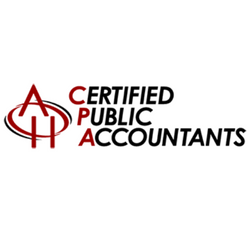
5 Tips on How to Effectively Manage Accounting For Your E-Commerce Business
As an e-commerce entrepreneur, it is imperative to ensure that you are knowledgeable about the basics of managing your accounts. From selecting the best software to tracking your sales and profit before tax, keeping yourself aware will increase the chances of running a growing and successful e-commerce enterprise.
To help you, we will discuss several tips on how you can effectively manage the accounting procedures of your e-commerce business.
What Makes E-Commerce Accounting Different?
Generally, the process of e-commerce bookkeeping and accounting is similar to those practiced in other industries. There are, however, several differences that make accounting for e-commerce differ from other accounting methods. Such differences are as follows:
- Finding transactional data. E-commerce transactions are found within the businesses’ channels and not through bank or credit card accounts.
- In-depth understanding of inventory and COGS. Having an in-depth knowledge of inventory and cost of goods sold (COGS) will place your business at an advantage.
- Sales tax for online sales. Online sales taxes are complicated. Keeping up-to-date with current trends is vital for a successful e-commerce business.
- Reducing foreign transaction costs. Depending on your target market, e-commerce businesses usually deal with foreign and overseas purchases.
These four aspects play a significant role in ensuring that the figures acquired from your customers are accurate. Besides these aspects, there are also several methods you can use to ensure that your e-commerce accounting is accurate.
#1: Choosing the Right Accounting Software
Finding the right accounting software that caters to your company’s needs is essential to making sure you can manage your accounting effectively. Many accounting software have specified targets for different accounting needs.
Before choosing, you must identify the type of bookkeeping and reporting you will need for your online business. You can consider software that provides the following features to ease your accounting process:
- Create Invoices
- Generate Reports
- Sales Tracking
- Inventory Monitoring
Looking into well-known accounting software such as QuickBooks, FreshBooks, and NetSuite is also advantageous as they are likely to cater to most of your accounting needs.
#2: Keep Track of Your Cash Flow
Recognizing the importance of your cash flow statement is vital for your business as it determines how much money you receive and let go during a specific period.
There are several ways you can follow to keep a healthy cash flow for your online business:
- Refrain from paying in advance. Although keeping on top of your payments is important, it is unnecessary to pay for them in advance. Paying them on their determined due dates will give you more time to generate more income and plan out your finances before paying.
- Consider monthly installments or subscriptions. Providing your customers an option to pay for products or services monthly ensures that you will be receiving steady and constant revenue.
- Refrain from draining your business’ bank account. It’s wise to leave a portion of money in your business bank account for any unforeseeable expenses you may encounter.
- Avoid overcomplications. Keeping your financial statements simple and straightforward is more beneficial than trying to secure a sizable technical cash flow statement.
Keeping track of your cash flow is essential to maintain your online business. This will give you a clear picture of how your online business is doing. Additionally, it gives you the chance to plan your finances accordingly and address specific financial issues your company may encounter.
#3: Monitor Your Inventory
Monitoring your inventory is essential to help your business operate successfully. Beyond the products you’re selling, you should also consider the raw materials you need to accompany or complement your product.
It is imperative to keep in mind that your inventory is equivalent to money. Each item you will use for your business to operate should be considered to ensure that you do not encounter any unwanted costs.
When running an online business, it is best to set a minimum and maximum amount of items you would want on hand. Setting such boundaries will help you decide whether it is time to reorder before running out.
#4: Understanding Your Cost of Goods Sold
The Cost of Goods Sold (COGS) refers to the direct cost of producing goods sold by a company. This includes the cost of materials and labor directly used to create the good. Indirect expenses, such as distribution and sales force, are excluded.
As an entrepreneur, it is important to have an in-depth understanding of your company’s COGS as it dictates your company’s profit margin. Higher COGS correlates with lower profit margins, which could be bad for business.
#5: Calculate Your Break-Even Sales Requirements
Once you have determined the costs of your products or services, it’s time for you to identify how much your other expenses are costing you. Usually, these expenses include rent, utilities, property tax, loan amortization, insurance, and additional external costs.
Such expenses can be defined as “fixed expenses”. These expenses usually have a fixed amount and due date that you will have to continue to pay for regardless of your earnings.
Once you have identified your fixed expenses, you will need to figure out how much you will need to “break-even”. The break-even amount refers to how much you will need to earn in a month to cover production and operations costs.
Manage Your E-Commerce Business Accounting With Confidence
Running an online business can have its challenges. It is imperative to have a thorough understanding of your accounts to ensure that your business runs smoothly and has a higher chance of success and growth.
If you find e-commerce accounting too exhaustive, it is wise to reach out to accounting, bookkeeping, and tax compliance services providers to guide you through the process with ease.
RELATED: The 5 Essential Accounting Reports for Your Business in the Philippines
Manage the Accounting of Your E-Commerce Business Effectively
With a large pool of experienced consultants, AHC can provide you with useful tools and methods to ensure that your accounting process is accurate and secure.


